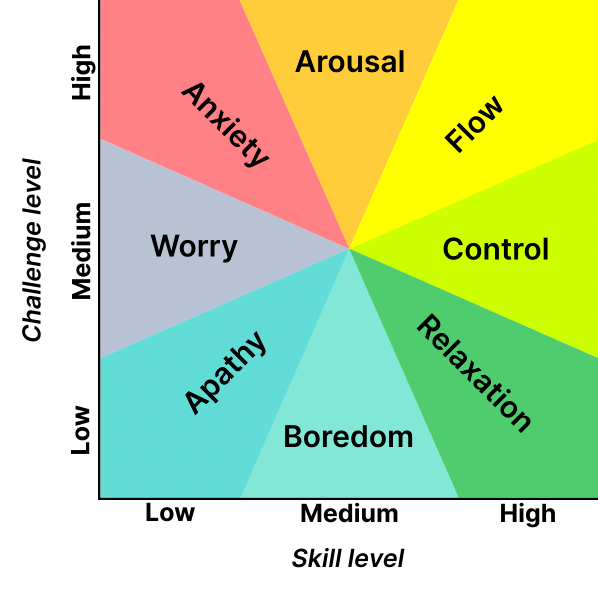On flow
Flow is the state in which you becoming completely immersed in an activity with effortlessness. Everything else seems to disappear.
It’s the feeling that’s sometimes described as being “in the zone” by athletes. Here’s legendary Formula One driver Ayrton Senna describing one of his experiences:
I was already on pole, [...] and I just kept going. Suddenly I was nearly two seconds faster than anybody else, including my team mate with the same car. And suddenly I realized that I was no longer driving the car consciously. I was driving it by a kind of instinct, only I was in a different dimension. It was like I was in a tunnel.
But the flow state is not limited to extreme sports. In fact, flow has been observed in artists, musicians, computer programmers, writers, and even children learning at school. Interestingly, kids attending Montessori schools have shown to achieve flow experiences more frequently than those in traditional schooling environments.
The flow state can be experienced by anyone that finds the right balance of challenge versus skill. Activities that slightly exceed one’s skillset, enough to stretch them without snapping, are ideal for finding flow because they demand attention and concentration.

But why should you care about flow? People report flow states as optimal experiences — both in the sense of being peak, enjoyable experiences, and high-level performances. Psychologist Mihaly Csikszentmihalyi’s work suggests that people with the highest well-being and sense of meaning are people who experience flow frequently. While more research needs to be done to confirm the causal relations of these claims, the idea intuitively makes sense.
In order to experience the state of flow more frequently, keep the following in mind:
- Limit distractions: getting 90-120 minutes of uninterrupted time is key, so stay away from your phone and email
- Consider dopamine triggers: novelty, unpredictability, complexity, and some amount of risk-taking can all drive motivation and create the ideal conditions for flow, so try to incorporate them into your tasks
While the contemporary study of the flow state is in its relative infancy, it has roots in the ancient philosophy of Taoism. Wu Wei, translated as effortless action, is the idea of flow in the Taoist tradition. Perhaps the main takeaway about the flow state from Taoism is that it cannot be forced. It’s all about approaching a task intelligently, which means knowing when to act and when not to — the balance between action and non-action. It’s also, at it’s very core, about being in the moment and the loss of self-consciousness. This idea has parallels in the practice of mindfulness, a topic for another time.